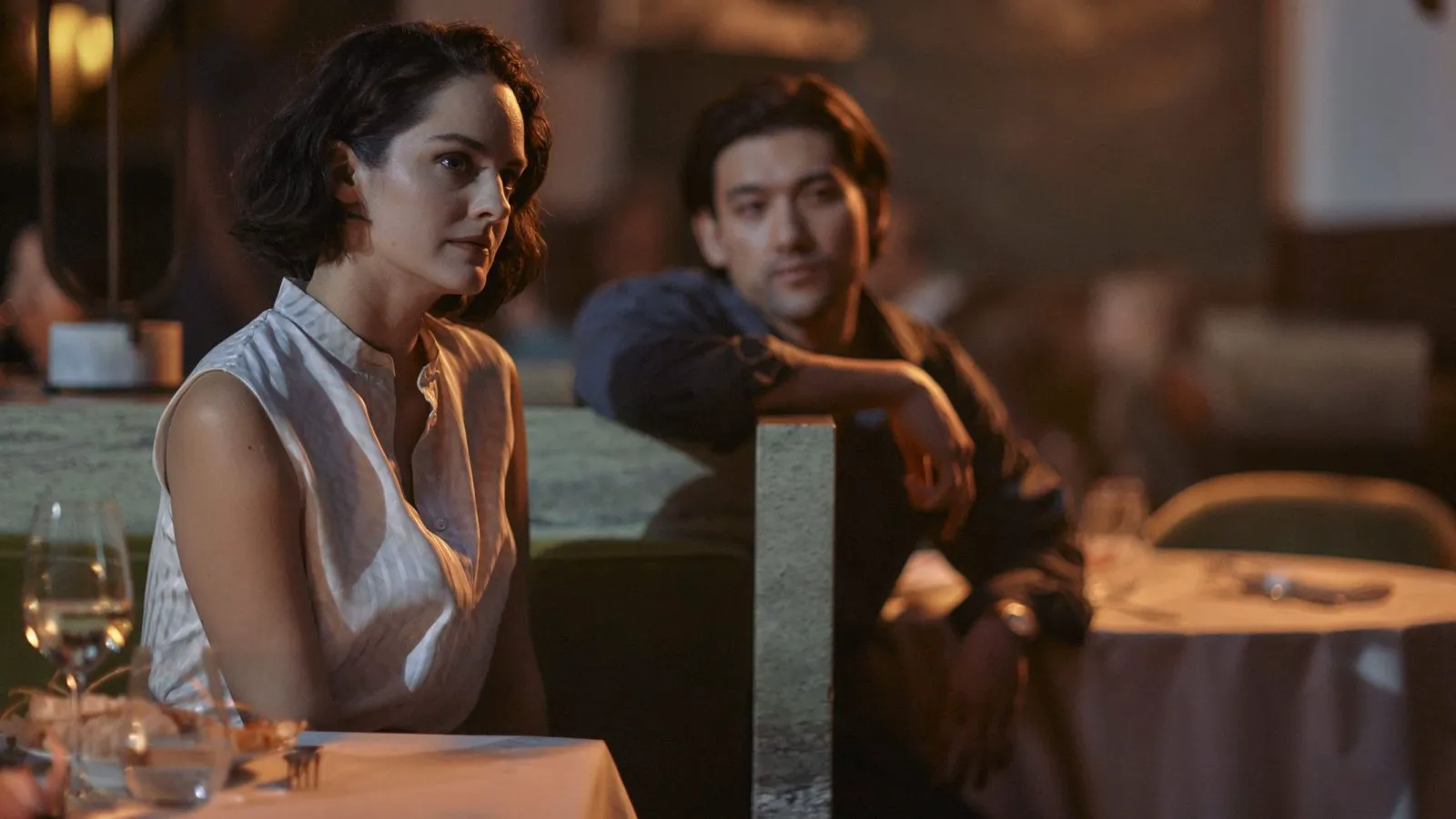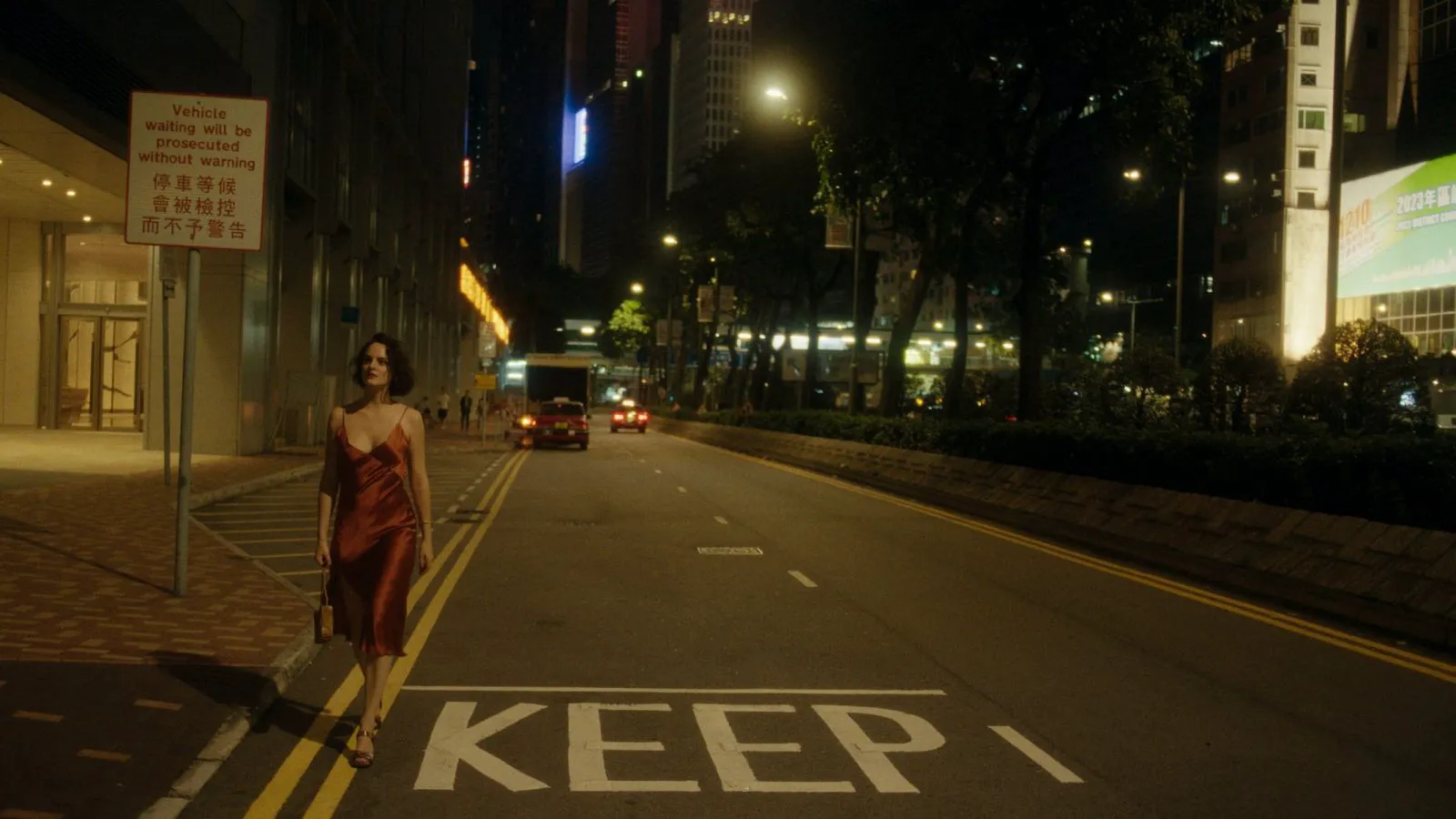Revisiting “Emmanuelle”: A 50-Year Retrospective and a Modern Remake
The original “Emmanuelle” by Just Jaeckin, released half a century ago, is a film that almost feels embarrassing to discuss today. It was so deeply infused with the spirit of the sexual revolution that desire seemed to ooze from every frame. This adaptation of Emmanuelle Arsan’s largely autobiographical novel foreshadowed the erotic thrillers that would flood screens in the 1980s. Think of David Lynch’s “Blue Velvet,” Michael Douglas’s infidelity in “Fatal Attraction,” and Sharon Stone’s unforgettable scene in “Basic Instinct.” The first “Emmanuelle” seemed to advocate for sex driven by love and a touch of scandal. Back then, the idea of mutual pleasure was not widely accepted, and female anatomy remained largely a mystery to men. As a result, erotic thriller plots often resembled Voynich manuscripts – incomprehensible yet captivating, sparking a desire to uncover their hidden secrets.

Noémie Merlant as Emmanuelle in the film “Emmanuelle”
A Shift in Perspective
Fast forward fifty years, and the perspective on female sexual satisfaction has undergone a dramatic transformation. Samantha Jones in “Sex and the City” demonstrated how to love oneself (in every sense of the word). Sam Taylor-Johnson’s “50 Shades of Grey,” released almost a decade ago, not only spawned countless jokes about its sex scenes but also paved the way for other films exploring intimate liberation. Now, after the triumph of her film “Happening” in Venice, Audrey Diwan has taken on “Emmanuelle,” aiming to re-examine the story of a woman seeking pleasure and love. Unfortunately, in this remake, the protagonist seems more interested in finding a bookmark for her copy of “Wuthering Heights” – and even that is interrupted by improprieties. In this reimagining of the classic, Emmanuelle travels to Hong Kong as an auditor, tasked with inspecting a luxury hotel. However, instead of focusing on fire safety regulations, she decides to pry into the lives of the guests, seeking her next sexual partner in the hope of discovering something new about herself through intimacy.

Noémie Merlant as Emmanuelle in the film “Emmanuelle”
The Original’s Allure vs. The Remake’s Shortcomings
The 1974 version of “Emmanuelle” had room for everything: complex human relationships, female emancipation, and the almost tactile exploration of sexual pleasure. The tension and friction created by these elements vying for attention kept viewers engaged, eager to witness Sylvia Kristel’s character’s attempts to find balance. This electrifying atmosphere resulted in sex scenes that, at times, resembled Caravaggio paintings – simultaneously mysterious and ruthless. But times have changed. Women have become more aware of their desires and no longer rely on men to find pleasure (technological advancements have provided a worthy substitute). The modern Emmanuelle can no longer be a lost fawn; instead, she becomes an auditor for a chain of luxury hotels, taking control into her own hands.

Noémie Merlant as Emmanuelle in the film “Emmanuelle”
Noémie Merlant’s Portrayal: A Mismatch?
Noémie Merlant, who plays the lead role, is no stranger to seeking happiness under the sheets. She played the center of a love triangle in “Curiosa” and rose to fame after “Portrait of a Lady on Fire,” which became a feminist ode for many. In “Emmanuelle,” Merlant portrays a confident woman, intellectually and physically developed, and this is her main problem: as a character in the new “Emmanuelle,” she simply feels out of place. While Sylvia Kristel’s character wandered aimlessly in search of pleasure, Merlant’s successor knows exactly what she wants – a trip to a luxury hotel is like a visit to a breakfast buffet. She interacts with the hotel manager, played by Naomi Watts, who tells her all about pleasing clients (with a suggestive undertone, of course), witnesses the sex work of Zelda (Chacha Huang), but sets her sights on the enigmatic Key (Will Sharpe), who never spends the night at home. Here, Diwan accidentally veers into “Saltburn” territory when Emmanuelle declares that she drank water from the man’s bathtub while he was out of the room.

Noémie Merlant as Emmanuelle in the film “Emmanuelle”
A Missed Opportunity for Female Empowerment
The remake of this erotic film should have been built around the female perspective: Emmanuelle knows what she wants and takes it. In reality, she turns out to be even more lost than the protagonist of the original film – in her attempts to seduce Key or extract secrets from the manager, Emmanuelle doesn’t think about herself at all. It would be more accurate to say that the character loses her identity, as hinted at by the constant glances through mirrors or phone cameras, which seem to increase the distance between the viewer and the woman’s experiences. It seems that Diwan violates the main rule of any self-assured woman: don’t chase after a man who doesn’t reciprocate. Instead, Emmanuelle dances a mating tango around him, as if trying to conquer an impregnable fortress for the sake of it. Hence the metaphor of Key’s profession: he builds dams and, apparently, has built one for himself to resist female pressure. The dam falls, the flow of water passes in a matter of minutes, and then – drought again.
Yes, everything in “Emmanuelle” feels dry. Perhaps the story of a woman’s search for her own pleasure is simply outdated: girls already know where, how, and with whom they can achieve what they want. Or maybe it’s all about the rules of the new ethics, according to which sex is not so much an emotional act as a verified and agreed-upon formality (at least, it should be on screen so as not to scare anyone). There is nothing wrong with the rules – it is strange to blame the choreographers who staged the sex scenes for the insipidity of the film: it is unlikely that the bounds of decency and attempts to avoid violence on set squeezed all the juices out of the film. Once, erotic thrillers were a breath of fresh air, because people, regardless of gender, were just beginning to explore the boundaries of what was permissible – in “Poison Ivy,” for example, a schoolgirl had an affair with her friend’s father. But the new “Emmanuelle” does not fit the definition of the genre: the only thriller element here is the dark color scheme of nighttime Hong Kong, and the eroticism has been turned into a rehearsed performance. By the way, it’s implausible – Diwan could have tweaked the feminist subtext if the heroine hadn’t started moaning and writhing even before the start of the foreplay. This time, it turned out to be more like “Nymphomaniac,” which has no goal, but has a path – and off-the-charts libido.